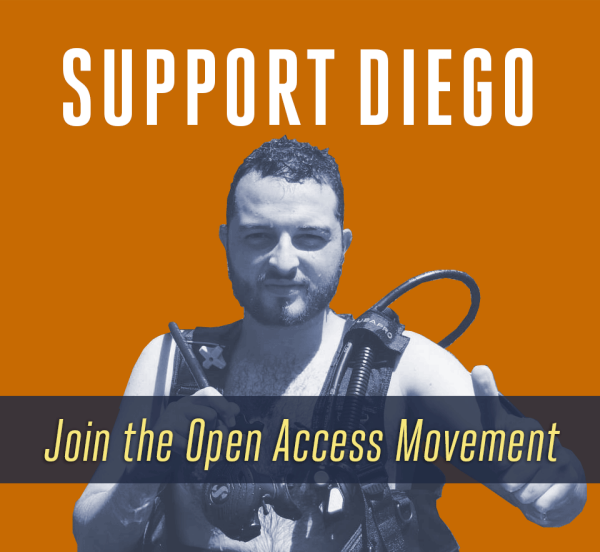Last year several organizations highlighted the situation of Colombian graduate student Diego Gomez, who had a criminal complaint filed against him for sharing a research article online. Gomez is a student in conservation and wildlife management, and for the most part has poor access to many of the resources and databases that would help him conduct his research. He shared an academic paper on Scribd so that he and others could access it for their work. If convicted, Diego could face a prison term of 4-8 years. Gomez will appear in court on June 30.
The Electronic Frontier Foundation sums up Diego’s situation well:
He posted the paper online because he was excited that he found it, because he wanted to share that knowledge with others who shared his passion. Copyright should not turn students like Gomez into criminals for reveling in their quest for knowledge nor for helping others to do the same.
As Gomez goes to trial this week, we must ask again: why are we prosecuting students for sharing knowledge? We know that this type of draconian leveraging of copyright law is not uncommon. From suing a student for downloading scholarly journal articles to issuing a takedown of a dancing baby video to pushing through secret international trade agreements that will extend the term of copyright and harm the public and the commons, large rights holders organizations continue to wield copyright law to punish those who attempt to do what comes naturally for them–sharing.
At the same time, with the dedicated work of individuals and organizations advocating for a sensible balance to copyright, there is hope that laws, regulations, and norms can be changed to support users and the public interest. For example, universities are adopting open access policies that preserve and make accessible the research of their faculty. The copyright reform debate in Europe has finally dropped a potentially dangerous provision that would have permitted rights holders to control how linking operates on the web. And WIPO adopted a treaty to increase global access to copyright-protected materials for the blind and visually impaired.
You can read what Diego has to say about his upcoming trial at Fundación Karisma. Fundación Karisma is the Colombian digital rights advocacy organization that is providing legal support to Gomez. And you can take action now to support Diego by signing the global declaration promoting open access to research.








Apoio a defesa de Diego.
I SUPPORT DIEGO !!!
We can’t let this happen. Free the Knowledge!
Still there is hope that laws, regulations, and norms can be changed to support users and the public interest. He should have released on WikiLeaks.